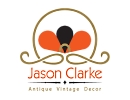Contact Seller
Jason Clarke Antiques
Tel07815 046645Please quote Antiques Atlas.


 Antique Opium Scales
Antique Opium Scales
 Pitch Pine Measuring Stick or Somastometre
Pitch Pine Measuring Stick or Somastometre
 Pharmacy Syringe in Beech Case by Wm Toogood Ltd
Pharmacy Syringe in Beech Case by Wm Toogood Ltd
 Dr Forbes Specifications Bath Thermometer
Dr Forbes Specifications Bath Thermometer
 Antique Wood & Brass Pill Roller from a Pharmacy
Antique Wood & Brass Pill Roller from a Pharmacy
 A Maw & Sons 19th Century Cast Iron Tincture Press
A Maw & Sons 19th Century Cast Iron Tincture Press
 Set of Apothecary Weights in Block / Stand,c1860
Set of Apothecary Weights in Block / Stand,c1860
 Dentist Treadle Mill. 19th Century.
Dentist Treadle Mill. 19th Century.
 WW11, Attaché Case First Aid Medical Equipment
WW11, Attaché Case First Aid Medical Equipment
 Vintage Medical Lab Allergy Test Solutions,1934
Vintage Medical Lab Allergy Test Solutions,1934
 Boxed Set 72 Histology Tissue Sample Slides,c1900
Boxed Set 72 Histology Tissue Sample Slides,c1900
 Horn Handled Fleam
Horn Handled Fleam
Non UK callers :
+44 7815 046645
Wet Cell Electrotherapy Machine by John Weiss


For sale, a Victorian wet cell electrotherapy machine by John Weiss & Sons of London.
Contained in a superbly crafted mahogany campaign type box, this early electrotherapy machine opens to reveal an early plastic type (probably parkesine) resistance dial with central brass adjusting knob and a positive and negative connection point either side.
To the underside of the removable console there are thirty three-pronged individual rods (anodes) which are formed from a mix of metals and underneath that, a separate crate containing thirty ceramic vials. By virtue of an ingenious lever mechanism attached to the lid, the anodes and the vials are brought into contact by the pushing back of the lid to its full extent. The vials would of course contained a mix of liquids that would have effected a chemical reaction with the anodes to create an electrical current. The shutting of the lid would have disengaged that contact and effectively stopped the chemical reaction between the two parts.
The base of the mahogany case contains a campaign handled drawer which is released by the raising of a pin on the rim and contains its original ebonised wood and brass electrodes which still maintain their sponge fittings and original wires. It also includes two replacement ceramic vials one of which is still paper wrapped.
The case has a set of campaign handles either side, a brass cartouche (un-engraved) to the lid and its original key.
Founded in 1787 by Johann Jacob Daniel Weiss, a German born cutler who moved to Britain and began to specialise in the manufacture of surgical instruments under the anglicised name of John Weiss. He married in London in 1805 and had two children, Frederick Foveaux and Mary.
Using his skills, Weiss revolutionised the medical instrument industry with numerous developments including the incorporation of slots into amputation blades to avoid clogging of tissue during this somewhat risky and painful procedure at the time.
His catalogues of 1823 and onwards contained numerous recommendations from leading surgeons of the period and after receiving permanent residency status in 1826 Weiss was duly honoured with a Royal Appointment under William IV as razor maker to the King.
In the same year (1831), his son Frederick joined Weiss in the business and the company was rebranded to John Weiss & Son based at 42 The Strand, London. The company moved to 62 The Strand in 1836 and upon the founders death in 1843, his son Frederick took sole ownership of the company.
With the solid grounding that his father had created for the company, Frederick continued to maintain this successful enterprise, exhibiting at the Great Exhibition of 1851 and with a flair for advertising showcased an ornamental cross which was formulated from 1851 blades. Unsurprisingly, the company was awarded a prize medal for their instruments.
Frederick formed numerous business partnerships throughout his tenure and in 1885 moved from The Strand premises to 287 Oxford Street (above Mappin & Webb) with further premises opening on King Street in Manchester. It was finally incorporated in 1899 and managed to weather the onset of production mechanisation techniques which largely killed off the trade in hand manufacturing prevalent during the Georgian and Victorian periods.
In 1956, the company moved again to new premises in Wigmore Street and was acquired by Clement Clarke in 1971. Whilst maintaining its own identity it became part of the Haag-Streit Group in 1989 and is now situated in Harlow in Essex where it continues to supply the medical trade as it has done since 1787.
This particular example was certainly produced prior to the company’s move to Oxford Street in 1885 owing to the brass makers tags attached to the underside of the lid. It is also known from catalogue evidence that Weiss was producing electric shock and electrotherapy machines as early as 1863. These wet cell machines are amongst the earliest of their type and are somewhat rarer than their later dry cell counterparts.
Circa 1870
SellerJason Clarke Antiques
View all stock from
Jason Clarke Antiques

 Private dealer
Private dealer
By appointment only
Newbury
Berkshire
Tel : 07815 046645
Non UK callers : +44 7815 046645
Contained in a superbly crafted mahogany campaign type box, this early electrotherapy machine opens to reveal an early plastic type (probably parkesine) resistance dial with central brass adjusting knob and a positive and negative connection point either side.
To the underside of the removable console there are thirty three-pronged individual rods (anodes) which are formed from a mix of metals and underneath that, a separate crate containing thirty ceramic vials. By virtue of an ingenious lever mechanism attached to the lid, the anodes and the vials are brought into contact by the pushing back of the lid to its full extent. The vials would of course contained a mix of liquids that would have effected a chemical reaction with the anodes to create an electrical current. The shutting of the lid would have disengaged that contact and effectively stopped the chemical reaction between the two parts.
The base of the mahogany case contains a campaign handled drawer which is released by the raising of a pin on the rim and contains its original ebonised wood and brass electrodes which still maintain their sponge fittings and original wires. It also includes two replacement ceramic vials one of which is still paper wrapped.
The case has a set of campaign handles either side, a brass cartouche (un-engraved) to the lid and its original key.
Founded in 1787 by Johann Jacob Daniel Weiss, a German born cutler who moved to Britain and began to specialise in the manufacture of surgical instruments under the anglicised name of John Weiss. He married in London in 1805 and had two children, Frederick Foveaux and Mary.
Using his skills, Weiss revolutionised the medical instrument industry with numerous developments including the incorporation of slots into amputation blades to avoid clogging of tissue during this somewhat risky and painful procedure at the time.
His catalogues of 1823 and onwards contained numerous recommendations from leading surgeons of the period and after receiving permanent residency status in 1826 Weiss was duly honoured with a Royal Appointment under William IV as razor maker to the King.
In the same year (1831), his son Frederick joined Weiss in the business and the company was rebranded to John Weiss & Son based at 42 The Strand, London. The company moved to 62 The Strand in 1836 and upon the founders death in 1843, his son Frederick took sole ownership of the company.
With the solid grounding that his father had created for the company, Frederick continued to maintain this successful enterprise, exhibiting at the Great Exhibition of 1851 and with a flair for advertising showcased an ornamental cross which was formulated from 1851 blades. Unsurprisingly, the company was awarded a prize medal for their instruments.
Frederick formed numerous business partnerships throughout his tenure and in 1885 moved from The Strand premises to 287 Oxford Street (above Mappin & Webb) with further premises opening on King Street in Manchester. It was finally incorporated in 1899 and managed to weather the onset of production mechanisation techniques which largely killed off the trade in hand manufacturing prevalent during the Georgian and Victorian periods.
In 1956, the company moved again to new premises in Wigmore Street and was acquired by Clement Clarke in 1971. Whilst maintaining its own identity it became part of the Haag-Streit Group in 1989 and is now situated in Harlow in Essex where it continues to supply the medical trade as it has done since 1787.
This particular example was certainly produced prior to the company’s move to Oxford Street in 1885 owing to the brass makers tags attached to the underside of the lid. It is also known from catalogue evidence that Weiss was producing electric shock and electrotherapy machines as early as 1863. These wet cell machines are amongst the earliest of their type and are somewhat rarer than their later dry cell counterparts.
Circa 1870
Price The price has been listed in British Pounds.
Conversion rates as of 19/JAN/2026. Euro & Dollar prices will vary and should only be used as a guide.
Always confirm final price with dealer. Sold
Category Medical Antiques
Period Mid Victorian Antiques
Material Mahogany
Origin English
Maker John Weiss
Item code as542a419
Status Sold
£0 
$0.00 
€0.00 

$

€

Conversion rates as of 19/JAN/2026. Euro & Dollar prices will vary and should only be used as a guide.
Always confirm final price with dealer. Sold
View all stock from
Jason Clarke Antiques

 Private dealer
Private dealerBy appointment only
Newbury
Berkshire
Tel : 07815 046645
Non UK callers : +44 7815 046645
You may also be interested in
 Antique Opium Scales
Antique Opium Scales
 Pitch Pine Measuring Stick or Somastometre
Pitch Pine Measuring Stick or Somastometre
 Pharmacy Syringe in Beech Case by Wm Toogood Ltd
Pharmacy Syringe in Beech Case by Wm Toogood Ltd
 Dr Forbes Specifications Bath Thermometer
Dr Forbes Specifications Bath Thermometer
 Antique Wood & Brass Pill Roller from a Pharmacy
Antique Wood & Brass Pill Roller from a Pharmacy
 A Maw & Sons 19th Century Cast Iron Tincture Press
A Maw & Sons 19th Century Cast Iron Tincture Press
 Set of Apothecary Weights in Block / Stand,c1860
Set of Apothecary Weights in Block / Stand,c1860
 Dentist Treadle Mill. 19th Century.
Dentist Treadle Mill. 19th Century.
 WW11, Attaché Case First Aid Medical Equipment
WW11, Attaché Case First Aid Medical Equipment
 Vintage Medical Lab Allergy Test Solutions,1934
Vintage Medical Lab Allergy Test Solutions,1934
 Boxed Set 72 Histology Tissue Sample Slides,c1900
Boxed Set 72 Histology Tissue Sample Slides,c1900
 Horn Handled Fleam
Horn Handled Fleam






